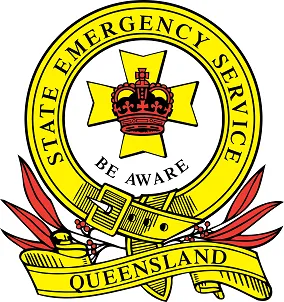New drug laws have been implemented in Queensland, aimed at addressing drug-related issues more effectively. These changes encompass a range of measures, from providing support and rehabilitation to minor drug offenders to imposing tougher penalties on drug traffickers. Let’s take a closer look.
If you have specific legal concerns related to drug offences, contact our team of experienced criminal lawyers at Rana Lawyers for guidance and support.
Drug Possession Offences
Queensland has taken a significant step in addressing drug-related offences by expanding the Police Drug Diversion program. This expansion represents a more comprehensive and compassionate approach to dealing with minor drug possession offences.
Under the new drug laws, a tiered approach has been introduced to handle minor drug possession offences. This approach is designed to provide individuals with the support and assistance they need, rather than immediately resorting to punitive measures.
- First offence: warning and referral to a support service
For individuals facing their first minor drug possession offence, the response is centred around education and support. A police officer will issue a warning, accompanied by a drug warning notice, and make a referral to a support service. The goal here is to provide individuals with an opportunity to understand the consequences of their actions and access resources that can help them address any underlying issues. - Second and third offences: drug diversion assessment program
In cases of a second or third minor drug possession offence, police will refer the individual to the mandatory Drug Diversion Assessment Program. This program aims to identify any substance abuse issues and direct individuals towards appropriate support and treatment services. - Fourth offence: notice to appear in court
If an individual faces a fourth minor drug possession offence, the response becomes more formal. A police officer will issue the offender with a notice to appear in court. At this stage, the legal system becomes more involved, and the individual will need to address their charges within the judicial process.
Tougher Penalties for Drug Traffickers
Previously, individuals convicted of drug trafficking could face a maximum penalty of 25 years imprisonment, now, they may face life imprisonment if convicted.
The rationale behind these stricter penalties is to send a clear message that drug trafficking is considered a grave offence in Queensland. The authorities aim to deter individuals from engaging in drug trafficking activities by imposing more severe consequences.
Drug trafficking can have profound negative impacts on individuals, families, and communities. It often leads to a range of social and health issues, including addiction, violence, and other criminal activities. By increasing the penalty for drug trafficking to life imprisonment, the legal system aims to address these issues and protect the well-being of the community.
The Reasoning Behind the New Laws
Understanding the motivation behind the new drug laws in Queensland sheds light on the broader objectives of these legal changes. One of the driving factors behind these laws is the sheer volume of minor drug possession cases that police officers handle each year.
Approximately 20,000 individuals are caught with small quantities of drugs in Queensland annually. These cases not only place a burden on law enforcement but also tie up significant resources in terms of time and paperwork. On average, processing and documenting these cases can consume up to 9 hours of police working time for each incident (that’s 180,000 hours per year, or 4,500 full time jobs at 40 hours a week – and that’s just for the minor offences).
By introducing the new drug laws, Queensland aims to address this issue significantly. The tiered approach outlined above, streamlines the process. This not only reduces the administrative workload for law enforcement but also allows officers to focus their efforts on more serious drug-related crimes, such as supplying dangerous drugs and trafficking dangerous drugs.
Additionally, these changes are designed to provide a helping hand to a particularly vulnerable group – young people. It’s often young individuals who are found with small quantities of drugs, and these situations can serve as early indicators of potential addiction issues. The new laws offer them an opportunity to access support and rehabilitation services rather than immediately penalising them, ultimately helping them address their substance abuse problems.
These laws reflect a commitment to a more compassionate and effective approach to addressing drug-related problems in Queensland.
Legal Rights and Responsibilities
Under the new drug laws, individuals facing drug-related charges have certain legal rights that must be upheld:
- The right to legal representation
You have the right to seek legal counsel and be represented by a lawyer during legal proceedings. Having an experienced lawyer by your side is crucial to ensuring that your rights are protected and that you receive a fair legal process.
- The right to remain silent
You have the right to remain silent when questioned by law enforcement officers. You are not obligated to incriminate yourself, and anything you say may be used against you in court.
- The right to a fair trial
You are entitled to a fair and impartial trial. This includes the right to present a defence, call witnesses, and challenge evidence presented against you.
- The right to be informed
You have the right to be informed of the charges against you, the evidence being used, and the potential consequences you may face if convicted.
Alongside your rights, you also have certain legal responsibilities:
- Compliance with legal orders
It is essential to comply with any legal orders issued by the court, such as attending court hearings, following conditions of bail, and participating in mandated programs if required.
- Seeking legal advice
If you are facing drug-related charges, it is strongly encouraged to seek legal advice promptly. An experienced lawyer can assess your case, provide guidance on your legal options, and advocate on your behalf throughout the legal process.
Stay Informed and Seek Legal Counsel
Knowledge is your most valuable asset when navigating the legal landscape. Staying up to date on new laws and understanding your rights and responsibilities can make a significant difference in the outcome of your case.
If you or someone you know is facing drug-related legal issues, we strongly encourage you to seek legal counsel. Our experienced criminal lawyers can provide you with the guidance, support, and advocacy you need to navigate the complexities of the legal system and secure the best possible outcome for your case. Contact Rana Lawyers today.
















